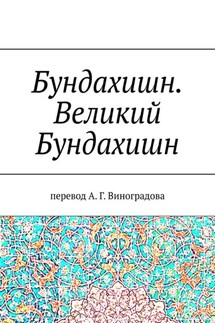Русский язык для сотрудничества России и Африки (2-е изд.). Учебник полезен для африканских и русских студентов - страница 6
Catherine II entered into correspondence with the Moroccan Sultan a few decades later.
For some time, the Russian state was very indifferent to Africa in the 19 century. The state interest was concerned about the tasks of expanding to the East – the Caucasus, Central Asia, Primorye. Travels under the auspices of the Russian Geographical Society to Africa began only in the 1870s, and Vasily Junker became one of the pioneers in the discovery of the Black continent. In 1875—1886 he made two long trips to the region of today’s South Sudan and the CAR, which by that time remained a solid white spot on the map of Africa.
In the first two months of 1889, a group of one hundred and fifty Cossacks reached a village in East Africa, which is now called Djibouti (at that time it was known as French Somaliland, and later the French territory of Afar and Issa). Their main goal was to establish a Russian colony called «New Moscow», which would form a springboard to build relations between the Russian Orthodox and the Ethiopian Orthodox Churches.
The most famous Russian African is Pushkin’s great-grandfather, the Arab Abram Hannibal. However, he probably did not originate from Ethiopia, as Pushkin himself believed, but from the Kotoko people, who live to this day on the shores of Lake Chad. This is evidenced, among other things, by linguistic facts.
The lack of Russian political interest in Africa predetermined the purely scientific nature of travel, which in the 19 century also had
a strong artistic and romantic character and goals.
Ethiopia has always been of interest to the Russian Empire. In January 1895, the Russian expedition of Nikolai Leontiev arrived to the oldest independent state of Africa, it began as a research expedition, but turned into a diplomatic matter. As a result of Leontiev’s meeting with Negus Menelik II, it was decided to establish diplomatic relations between the two countries. In January 1896, Leontiev returned to Ethiopia and became Menelik’s military adviser during the Italian-Ethiopian War, during which the colonizers were defeated with the help of Russian weapons, and Ethiopia retained its independence.
Many Russian volunteers fought in the Anglo-Boer War of 1899—1902 on the side of the Boers.
During the second half of the 19th century, Russian consulates were opened in the North African countries controlled by Europeans – Morocco, Algeria, Tunisia and Egypt.
The Russian Empire hoped to enlist the support of the rulers of Morocco, Egypt and Tunisia in the confrontation with the Ottoman Empire. In 1869, diplomatic relations were established with Tunisia, in 1897 – with Morocco, in 1898 – with Ethiopia and the state of the Boer Afrikaners – the Transvaal Republic.
The Russian Black Sea Fleet, which left Sevastopol after the defeat of the «white movement» during the revolution that began in 1917, was evacuated in 1920 to the Tunisian Bizerte.
Russian consulates worked until 1924, and thousands of Russian emigrants scattered through the cities of North Africa, some of whom gained fame in their new homeland.
After the October Revolution of 1917, Russian-African relations practically did not develop; only in 1943 did the Soviet Union manage to establish official relations with Egypt and Ethiopia.
The USSR initiated the adoption the Declaration on the Granting of Independence to Colonial Countries and Peoples by the UN General Assembly in 1960. As African countries gained independence and developed contacts with the USSR, the Soviet country consistently defended their interests in the UN. In particular, in 1973, the UN General Assembly adopted the Convention on the Suppression and Punishment of the Crime of Apartheid, proposed by the USSR jointly with Guinea.







